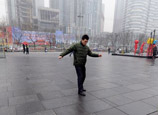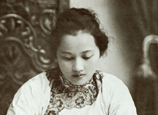
China's rich showed increasing enthusiasm about making big donations to the nonprofit sector and most of their donations, including pledges, went to universities in 2012, according to a new report.
Last year saw charitable gifts of 4.9 billion yuan ($787 million) and pledges of 60 billion yuan from the country's top 100 individual donors, according to the China Philanthropy Research Institute of Beijing Normal University.
The total value was five times that of the previous year, it said.
Huang Nubo, chairman of Beijing Zhongkun Investment Group, a private company, topped the list as the most generous donor with a pledged gift of 50 billion yuan to Peking University over 10 years.
Huang, alumnus of Peking University, donated 900 million yuan to the university and another 20 million yuan to another two higher education institutions in 2011.
Yang Xiu, a real estate developer in Nanjing, Jiangsu province, ranked third on the list with a generous donation of 400 million yuan to Nanjing University.
Liu Xiaoli, secretary-general of the Nanjing University Education Development Foundation that received Yang's donation, said that Yang signed a contract with the university, promising a fund of 100 million yuan to support history studies and the rest to help the university set up a department of engineering.
"In the past, we received small donations from entrepreneurs or alumni who simply asked us to provide scholarships for students from poor family backgrounds. Spending that money was an easy job for us," Liu said.
"Now, we need to establish a foundation and make long-term plans to ensure that the large donations can be used effectively," she said.
The report also showed that more than 80 percent of the giving went to the education sector.
The mainland's new tycoons from the property, energy, high-tech, construction and financial sectors made the most contributions in large donations.
Deng Guosheng, director of the NGO Research Center at Tsinghua University, said large charitable giving became a significant trend in China after the devastating earthquake in 2008 aroused public passion to donate for disaster relief work.
"However, our research also found that many rich Chinese people assumed philanthropy was a simple task and few have a clear strategy in charitable giving or making sustainable efforts to help solve some social problems such as aging," he said.
"It resulted in overlapping donations in a few fields, including education," he said.
Wang Zhenyao, director of the China Philanthropy Research Institute at Beijing Normal University, said that rapidly accumulated wealth in the charitable sector also calls for better management and transparency in spending.
















 'Wedding' for two old men in Beijing
'Wedding' for two old men in Beijing


![]()
